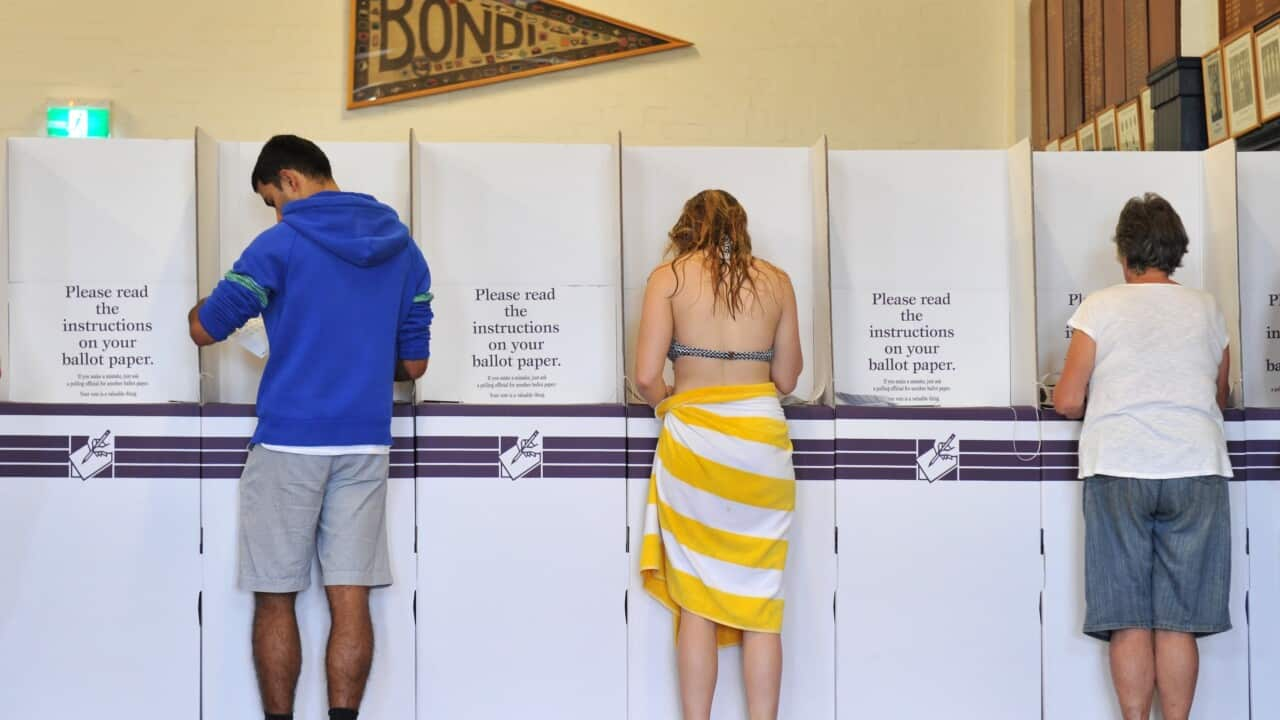Why do we have compulsory voting?
After the First World War, there was a significant decline in voter turnout in Australia from . In order to address the problem, concerned political parties agreed to introduce a system of compulsory voting, and a private member's bill to amend the Electoral Act was introduced in 1924.
According to the , the impact was immediate, with voter numbers at the 1925 election rising to more than 91 per cent.
In the years that followed, states across the country introduced compulsory voting starting with Victoria in 1926, NSW and Tasmania in 1928, Western Australia in 1936 and South Australia in 1942.
"To force people to vote who don’t want to be there, who don’t know what they are doing, is frankly quite ludicrous"
When Indigenous Australians were given the right to vote at a federal level in Australia in 1962, it was on a voluntary basis. This changed in 1984 when voting became compulsory for all eligible voters.
Politics professor Ian McAllister, from the Australian National University in Canberra, told SBS the system enjoyed "widespread support" across Australia, and said public-opinion surveys conducted by the university consistently found the "portion of people who are very strongly in favour of it far outnumber the people who are very strongly against it".
Related reading

Interactive: How does preferential voting work in Australia?
What happens if you don't vote?
According to the , people who fail to vote will be sent a letter asking to provide a legitimate reason or pay a $20 fine.
If they fail to pay the fine or provide a valid reason for not voting, the matter will be sent to court.
The AEC states: "If the matter is dealt with in court and you are found guilty, you may be fined up to $180 plus court costs and a criminal conviction may be recorded against you".
Professor McAllister said there was no reliable data on how many people are fined each year for failing to vote however he said it was estimated to be about 2000-3000 people per year.
What other countries have compulsory voting?
There are 26 countries around the world that have compulsory or mandatory voting but Professor McAllister said that in most of those countries, unlike in Australia, the system is not enforced.
Some examples include Costa Rica, the Dominican Republic and Thailand, where there is no penalty for failing to vote.
A number of countries have also tried and then abandoned compulsory voting, including the Netherlands, Fiji and Chile.
"We do know that the more people turn out to vote in elections, the higher the level of satisfaction with democracy in a country."
Then- US President Barack Obama praised Australia's compulsory voting system, describing it as "transformative" during a speech to students at a Chicago law school.
But Professor McAllister said he did not expect more countries, including the US, to follow Australia's lead.
"You have to have a political culture here that supports compulsory voting," he said.
"The Australian political culture is very utilitarian and looks at the greatest happiness for the greatest number.
"The United States and Britain are individual-rights cultures, so the idea that you should be forced to do something for the greater good of the majority would not be something that’s inherent in the political culture."
Related reading

Obama praises Australia's mandatory voting
What are the drawbacks?
There are a range of arguments against compulsory voting, including that people shouldn't be forced to vote, that the system encourages ill-informed voting and will increase the number of "donkey" votes, and that sometimes there just isn't a candidate worth voting for.
In 2015, Victorian Liberal MP Bernie Finn spoke out against the system after the state election in Victoria, saying: "To force people to vote who don’t want to be there, who don’t know what they are doing, is frankly quite ludicrous".
Professor McAllister said the system also changed the way parties campaigned.
"The two functions of a political party are to mobilise and convert - to mobilise people to turn out and convert them to party's cause," he said
"When you have a compulsory voting system the parties don’t mobilise anymore, the only thing they try to do is convert people. It means that party organisations are very weak at a local level, they don’t have a lot of members."
However he said the high voting turnout caused by compulsory voting may increase overall satisfaction with the political system.
"We do know that the more people turn out to vote in elections, the higher the level of satisfaction with democracy in a country," he said.
Tell us what you think in the poll below:

